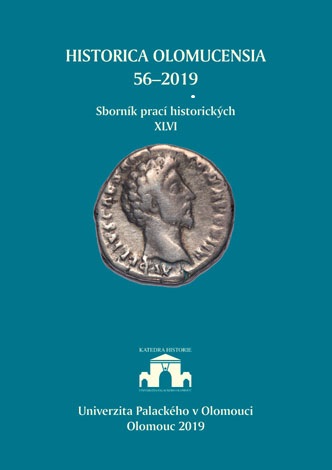Revoluce v Itálii 1831 a rakouská vojenská intervence
The revolution in Italy in 1831 and The Austrian military intervention
Author(s): Daniel MartínekSubject(s): History, Military history
Published by: Univerzita Palackého v Olomouci
Summary/Abstract: There was not a major military conflict in the west and central Europe during the period between the Napoleonic wars and the year 1815 to the revolutionary year 1848. Nevertheless, during the given period existed several critical situations, which were an imminent threat to European peace. One of such situations was the July revolution in France in the year 1830 followed by the revolutionary wave coming through the whole of Europe, which did not miss the Italian peninsula as well. Revolutions sparked in three Italian states, in the Duchy of Modena, the Duchy of Parma and in the State of the Church, at the beginning of February 1831. The Habsburg rulers left their thrones scared in the duchies in the first days of the revolution. Similarly, the papal deputies left their positions in Legazioni, the northern provinces of the State of the Church. The created revolutionary governments gradually took over the control in both duchies and almost in the whole region of the State of the Church, except Rome and the imminent surroundings. During February, there were put into action administrative reforms in all three central Italian states. The government in Bologna even declared the constitution of a new state with a name of United Italian Provinces and declared a constitution at the turn of February and March. The individual rulers were not able to solve the situation with their own means. Klemens Wenzel Lothar Nepomuk von Metternich, Austrian state chancellor and the minister of foreign affairs, was aware of the fact as well. He did not want to allow any political changes in the Italian peninsula, which would threaten the peace in Europe and the dominance of the Austrian empire in the Italian area. Therefore, imperial military units from Lombardy-Venetia were sent to cease the revolution already at the beginning of March. The strictly kept principle of non-intervention declared by the government in Paris in the previous year which was taken over by the revolutionary government in Italy caused fragmentation of the revolutionary movement and it condemned it to the end in the end. The Austrian army therefore without any major struggle intervened in all three states and foiled the revolutionary efforts. The short fight for a liberational government of the inhabitants of the states of central Italy ended by the capitulation of the revolutionaries in Ancona at the end of March. The reality, that the struggle was put to rest by the Austrian intervention was later used by the Italian politicians and nationalists in order to eliminate the influence of Vienna in the Italian peninsula. The influence of European powers actually impeded with the origin of a united Italian national state.
Journal: Historica Olomucensia. Sborník prací historických
- Issue Year: XLVI/2019
- Issue No: 56
- Page Range: 109-132
- Page Count: 24
- Language: Czech

